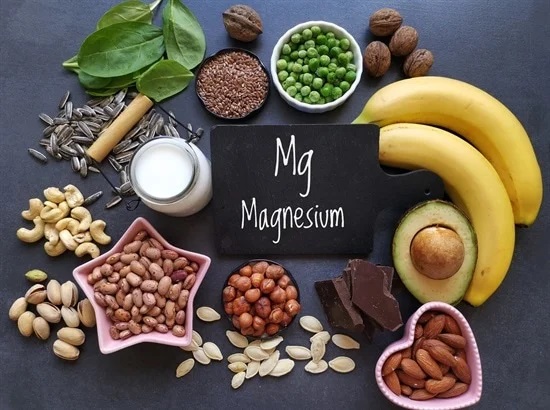Magnesium, often referred to as the “unsung hero” among minerals, plays a crucial role in maintaining overall health and well-being. While it may not receive the same level of attention as other essential nutrients like calcium or vitamin D, magnesium is, in fact, indispensable for numerous bodily functions. In this article, we will explore the importance of magnesium intake and why it should not be overlooked in your diet.
The Basics of Magnesium
Magnesium is a mineral that is involved in over 300 biochemical reactions within the human body. It is essential for various bodily functions, including muscle and nerve function, blood glucose control, blood pressure regulation, and bone health. Additionally, magnesium plays a role in DNA and RNA synthesis, as well as the formation of proteins.
Sources of Magnesium
While magnesium is present in many foods, it’s not always consumed in sufficient quantities in modern diets. Some excellent dietary sources of magnesium include:
- Nuts and Seeds: Almonds, cashews, peanuts, and pumpkin seeds are rich in magnesium.
- Leafy Greens: Spinach, kale, and Swiss chard are packed with magnesium.
- Whole Grains: Foods like brown rice, quinoa, and whole wheat bread contain magnesium.
- Legumes: Beans, lentils, and chickpeas are magnesium-rich options.
- Seafood: Certain fish, such as mackerel and salmon, provide a good dose of magnesium.
- Dairy: Dairy products like yogurt and milk also contain magnesium, albeit in smaller amounts.
- Dark Chocolate: If you’re looking for a sweet treat that’s high in magnesium, dark chocolate is a surprisingly good source.
- Supplements: In cases where dietary intake is insufficient, magnesium supplements can be beneficial. However, it’s essential to consult a healthcare professional before starting any supplementation regimen.
The Importance of Magnesium Intake
- Muscle Function: Magnesium is crucial for proper muscle function. It helps muscles contract and relax, which is essential for daily movements and athletic performance.
- Bone Health: Approximately 60% of the body’s magnesium resides in the bones. Adequate magnesium intake is vital for maintaining bone density and strength.
- Heart Health: Magnesium helps regulate blood pressure and supports a healthy cardiovascular system. It also plays a role in preventing arrhythmias and maintaining a steady heartbeat.
- Blood Sugar Control: Magnesium assists in the metabolism of carbohydrates and regulates insulin sensitivity, which can help prevent and manage type 2 diabetes.
- Nerve Function: Proper nerve function depends on magnesium, as it helps transmit nerve signals throughout the body.
- Energy Production: Magnesium is essential for ATP (adenosine triphosphate) production, the body’s primary source of energy.
- Stress Reduction: This mineral can have a calming effect on the nervous system, helping to alleviate stress and anxiety.
- Sleep Support: Magnesium can improve the quality of sleep by promoting relaxation and aiding in the regulation of the sleep-wake cycle.
Potential Deficiency and Risks
Despite its importance, magnesium deficiency is not uncommon, especially in populations with poor dietary habits. A magnesium deficiency can lead to a range of health issues, including:
- Muscle cramps and spasms
- Fatigue and weakness
- Nausea and vomiting
- Abnormal heart rhythms
- High blood pressure
- Osteoporosis
- Insulin resistance
- Migraines
- Anxiety and depression
Final Thoughts
In conclusion, magnesium is an often-overlooked mineral that plays a vital role in maintaining overall health and well-being. Incorporating magnesium-rich foods into your diet or considering supplements when necessary can help ensure you meet your daily magnesium requirements. By paying attention to your magnesium intake, you can support muscle function, bone health, heart health, and more, ultimately promoting a healthier and more vibrant life. Remember, a balanced diet and consulting with a healthcare professional are key to maintaining optimal magnesium levels and reaping the benefits it offers.






